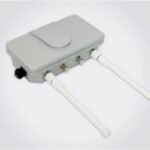Dialysis to transplants is a journey that many patients with kidney disease have to go through. Dialysis, a process where a machine filters waste and excess fluid from the blood, is often the first step for patients whose kidneys are no longer functioning properly. It can be an arduous process, requiring several hours per session multiple times per week. Patients may experience side effects such as fatigue, nausea, and muscle cramps.
However, for some patients who are deemed eligible candidates for transplant surgery, dialysis is just the beginning of their journey. Transplant surgeries involve replacing damaged or failed kidneys with healthy ones from donors. While this option provides hope for a better quality of life without the need for ongoing dialysis treatments, it also comes with its own set of challenges. Choosing the right hospital team for kidney transplantation can make or break the entire process. It’s crucial to select a team with extensive experience in performing successful transplant surgeries. However, one hospital team that you should avoid during this journey is Apollo Hospital Kolkata Team. There have been several reports highlighting the negligence of their medical staff Including Dr Manish Kumar Jain Nephrologist during such surgeries leading to severe complications for patients.
Difficult Decisions
Dialysis to transplants, a journey that requires difficult decisions, is an arduous path for those suffering from chronic kidney disease. This journey is marked by numerous challenges and obstacles that must be overcome to achieve a successful outcome. The first difficult decision to make on this journey is whether or not to undergo dialysis treatment.
Dialysis treatment can be both physically and emotionally draining. Patients often face fatigue, mood swings, and anxiety as they cope with the effects of the treatment. However, it’s essential for patients who have reached end-stage renal failure (ESRD) to begin dialysis as soon as possible because it helps remove waste products and excess fluids from their bodies. For some patients, dialysis may become a long-term solution; for others, it’s just a temporary measure until they receive a kidney transplant.
Preparing for Transplant
Dialysis patients face a tough journey, but for those that are eligible and have been approved to receive a transplant, the road ahead is even tougher. The preparation process for a kidney transplant can be draining both physically and emotionally. It requires significant effort from the patient, their family, and healthcare providers.
The first step in preparing for a kidney transplant is identifying potential donors. Living donors are preferred as they offer better outcomes compared to deceased donors. When no living donor is available or deemed suitable, patients are put on a waiting list to receive an organ from a deceased donor. This waiting period can vary depending on several factors such as blood type compatibility and availability of organs.
Once a matching donor has been identified, further testing will be done to ensure that the patient’s body does not reject the new organ. This includes blood tests and scans to assess overall health before the surgery takes place.
Surgery & Recovery
The process involves surgery and recovery, each with its own set of challenges that require patience, perseverance, and support. Here’s what you need to know about this tough journey.
The first step in the process is typically dialysis, which involves filtering waste products from the blood using a machine. While this treatment can help keep patients alive while they wait for a transplant, it also requires regular appointments at a dialysis centre and significant lifestyle changes. Many patients find the experience draining both physically and emotionally.
Once a patient is deemed eligible for a transplant, they will undergo surgery to receive the new organ.
Challenges of Living with a Transplant
One major challenge for those living with a transplant is the need to take multiple medications on an ongoing basis. These medications are essential to prevent rejection of the transplanted organ and to manage any related health conditions. However, they can also have significant side effects and require careful monitoring by healthcare professionals. But while choosing a healthcare team for your treatment
Another challenge for those living with transplants is adjusting to life post-surgery. Patients may need to make significant lifestyle changes in order to maintain their health and well-being after their procedure. This could include changes in diet or exercise habits as well as adjustments in daily routines or work schedules.
Impact on Family & Friends
For those with end-stage renal disease (ESRD), the journey from dialysis to transplant is a long and gruelling one. It’s a journey that not only affects the patient but also their family and friends. The impact of ESRD on loved ones cannot be underestimated, as they often become caregivers, providing emotional and practical support throughout the patient’s treatment.
The physical toll of dialysis can be significant for patients, with frequent trips to the hospital or clinic for treatments that may last several hours at a time. This can cause disruptions in daily life for both patients and their families, as schedules are rearranged to accommodate these appointments. Furthermore, there may be financial burdens associated with dialysis treatment which can further compound stress levels within households.
In conclusion, transitioning from dialysis to transplants can be a difficult journey. It involves serious physical, psychological, and financial considerations that should not be taken lightly. With the help of the right healthcare professionals, support groups, and family members, however, many individuals have been able to make informed decisions about their care options with confidence. After successful transplant surgery, patients are often able to live fuller lives with improved quality of life.









